 Petzlover
Petzlover Both Bicolor and York Chocolate Cat are originated from United States. Both Bicolor and York Chocolate Cat are having almost same weight. Bicolor may live 3 years more than York Chocolate Cat. Both Bicolor and York Chocolate Cat has same litter size. Both Bicolor and York Chocolate Cat requires Moderate Maintenance.
Both Bicolor and York Chocolate Cat are originated from United States. Both Bicolor and York Chocolate Cat are having almost same weight. Bicolor may live 3 years more than York Chocolate Cat. Both Bicolor and York Chocolate Cat has same litter size. Both Bicolor and York Chocolate Cat requires Moderate Maintenance.
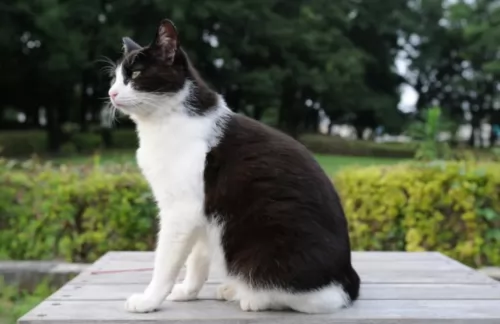 The first thing to know is that a Bicolor cat isn’t in fact a breed. Bicolor is just a term that describes a certain look that a cat has with its coat. It’s a cat with two colors such as red and white or black and white.
The first thing to know is that a Bicolor cat isn’t in fact a breed. Bicolor is just a term that describes a certain look that a cat has with its coat. It’s a cat with two colors such as red and white or black and white.
A popular name for bi-color cats is also Piebald or Tuxedo, and in fact many cat breeds can produce bicolor kittens, or black and white kittens such as Cornish Rex, Maine Coon, Manx, and others.
There are different coat color combinations when it comes to bicolor cats and the black and white markings may be more common but there are other color combinations too such as orange and white.
Nobody seems to know the origins of the Bicolor cats so we are going to assume they come from the USA.
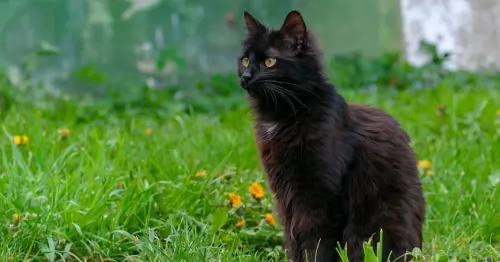 The York Chocolate cat is often referred to simply as the York. The cat was developed in New York in 1983 by breeder Janet Chiefari. The American breed of cat came about by selecting certain colors for breeding.
The York Chocolate cat is often referred to simply as the York. The cat was developed in New York in 1983 by breeder Janet Chiefari. The American breed of cat came about by selecting certain colors for breeding.
The breed isn’t recognized by cat registries, however, in March 1990, the Cat Fanciers’ Federation of the New England area recognized York Chocolates as an experimental cat breed.
By 2016 no registry carried its breed standard and it looks as though the cat is now extinct. Later is was also established that the International York Chocolate Federation was founded in 2003 but that the site seems to be archived.
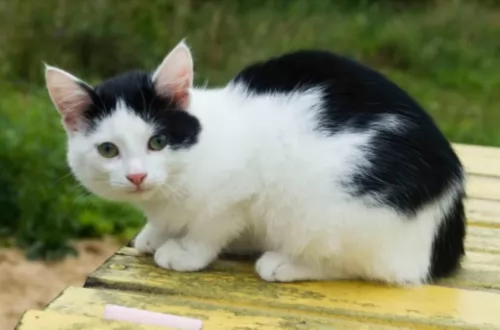 Regardless of the breed they belong to, information on these cats suggests that they can have many different looks. Look at the amazing Turkish Van cat for instance – each of these cats is recognizable for its long, luxurious fur. You’ll find a few touches of color on the cat's ears and tail, making in a Bicolor. They also have an interesting characteristic – being fond of water!
Regardless of the breed they belong to, information on these cats suggests that they can have many different looks. Look at the amazing Turkish Van cat for instance – each of these cats is recognizable for its long, luxurious fur. You’ll find a few touches of color on the cat's ears and tail, making in a Bicolor. They also have an interesting characteristic – being fond of water!
These Bicolor cats weigh in the region of 3 – 7kg, and can tend towards the smaller or larger size. Some of them can have short or long hair, larger or smaller ears and green or yellow eyes.
Coming from different cat breeds, the bicolor cat can have a mix of wonderful characteristics – they can be vocal or quiet or confident or shy.
They’re always wonderful though and can be curious, intelligent, playful, loving and loyal. They make great companions who just love the interaction they have with their human owners.
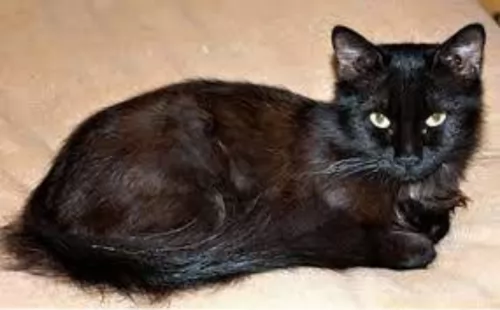 Today the breed is still under development and in the experimental stages. It is a medium to large cat, both robust, sturdy, and muscular.
Today the breed is still under development and in the experimental stages. It is a medium to large cat, both robust, sturdy, and muscular.
He can weigh up to 7 or 8 kg. The head is medium-sized with a rounded muzzle and the ears fairly large, pointed and tufted and broad at the base.
The eyes are medium in size, almond-shaped, and slanted slightly. The color of the eyes is a striking gold, green, or hazel.
The legs are also medium to long in length and well-muscled with the hind legs being a bit longer than the forelegs. The coat is medium to long, smooth and glossy with no undercoat. Color of the coat is mainly a rich chocolate color or silver, black and white.
The York Chocolate is a loyal and friendly cat. He is independent and although he loves his human family, he is perfectly happy on his own as well. They make wonderful pets as they get on well with children and also with other pets in the home.
They’re even-tempered and adapt well to all kinds of lifestyles. What is notable about this cat is that even if you tend to ignore him, he wants to lavish you with his attention. He is a cat that just loves to spend time with his human family.
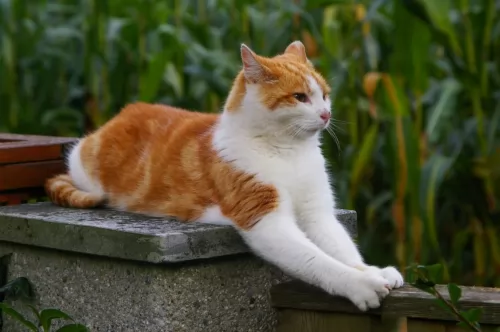 The Bicolor cat is such a steady, reliable cat-friend to have. When you start looking as these cats as your companion, you're going to get a smart, funny, adoring, playful family member who will be there for you whether you go to work each day or stay at home.
The Bicolor cat is such a steady, reliable cat-friend to have. When you start looking as these cats as your companion, you're going to get a smart, funny, adoring, playful family member who will be there for you whether you go to work each day or stay at home.
They’re such easygoing cats, with no airs and graces. They’re happy, relaxed, and uncomplicated cats and when you make a Bicolor your pet and friend, your life just becomes that much more meaningful.
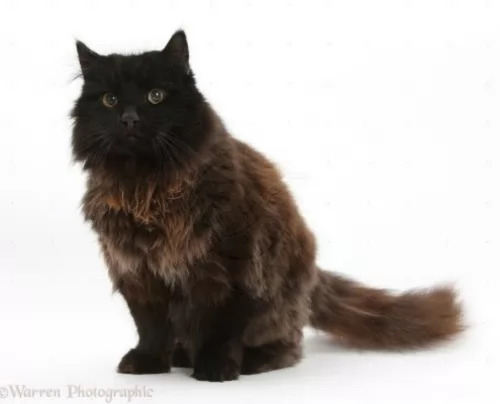 The York Chocolate is an ideal breed for families but he will get along well with single people too who are willing to make a fuss of him.
The York Chocolate is an ideal breed for families but he will get along well with single people too who are willing to make a fuss of him.
He is the kind of cat that makes himself at home indoors or outdoors. He has such an amicable nature and wants to be your friend. In return for this friendship, he needs to be given a whole lot of love and attention.
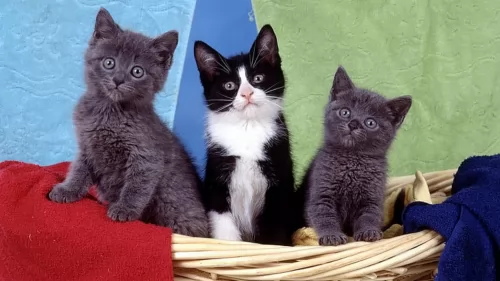 By providing your kitty cat with a loving home, you can ensure that he stays as healthy as possible. Unfortunately though, cats can get sick, regardless of how well you take care of them and then as a responsible pet owner, you will be able to take your pet to your local vet.
By providing your kitty cat with a loving home, you can ensure that he stays as healthy as possible. Unfortunately though, cats can get sick, regardless of how well you take care of them and then as a responsible pet owner, you will be able to take your pet to your local vet.
Some of the common cat problems you get can be kidney disease, ear infections, dental disease, parasites such as heartworm, cancer or something like feline immunodeficiency virus.
Whether your cat has a virus or an infection, remember that getting your cat to the vet can mean nipping the problem in the bud before it gets more serious.
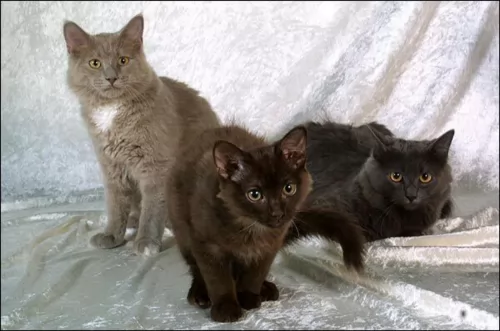 York Chocolates are generally considered to be healthy cats, but always schedule regular wellness visits with the vet if you suspect even the smallest illness.
York Chocolates are generally considered to be healthy cats, but always schedule regular wellness visits with the vet if you suspect even the smallest illness.
The insides of the cat’s ears should be examined regularly for signs of dirt and wax build-up that can lead to an infection.
The trend these days is to brush your cat’s teeth. This can absolutely traumatize your cat. When you take your cat for a check-up he will in any case look inside your cat’s mouth to make sure there aren't any bad teeth.
As a cat owner, it is a good idea to recognize the signs and symptoms of common illnesses in your cat. Cancer
Cats can get different kinds of cancer – where cells grow uncontrollably and spread to all parts of the body.
When a cat doesn't produce insulin, his blood sugar levels elevate and this can result in hyperglycemia.
Rabies is a viral disease that affects the brain and spinal cord. It's a deadly disease that can be prevented by vaccination.
Vomiting is a common problem with cats with many different causes. The danger with vomiting is that it can lead to dehydration,
A cat’s upper respiratory tract is susceptible to infections caused by a variety of viruses and bacteria.
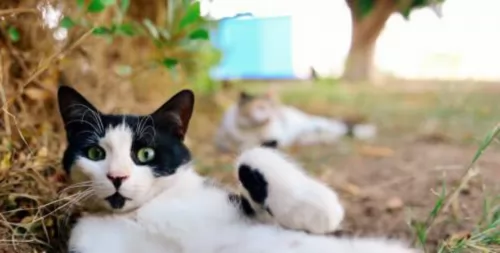 Caring for your Bicolor cat is much the same as with any other cat. Your Bicolor will shed, so brushing him will tickle him pink, especially if you do it lovingly and gently – it’s like a bonding session. The weekly brushing will get rid of loose hairs and dust and keep the coat healthy and shiny.
Caring for your Bicolor cat is much the same as with any other cat. Your Bicolor will shed, so brushing him will tickle him pink, especially if you do it lovingly and gently – it’s like a bonding session. The weekly brushing will get rid of loose hairs and dust and keep the coat healthy and shiny.
Spay or neuter your pet to avoid unwanted kittens. Stay up to date on veterinary visits and vaccinations.
Provide your cat with stimulating toys as well as all the equipment he needs to be comfortable – food and water bowls, litter box, grooming equipment, bedding, climbing- and scratching equipment.
All cat owners, whether their cats eat homemade food or wet- or dry food should read cat food labels and understand the nutrients content.
Certainly, as a carnivore, cats require certain vitamins, minerals, and proteins that only meat can provide.
Understand how to work out if the cat food is balanced or not and not packed with too many grains and carbohydrates.
How much your Bicolor eats will depend on his age and his activity levels. Be careful not to overfeed your cat as overfeeding is dangerous. When cats put on too much weight, it leads to problems such as diabetes, heart- and joint disease.
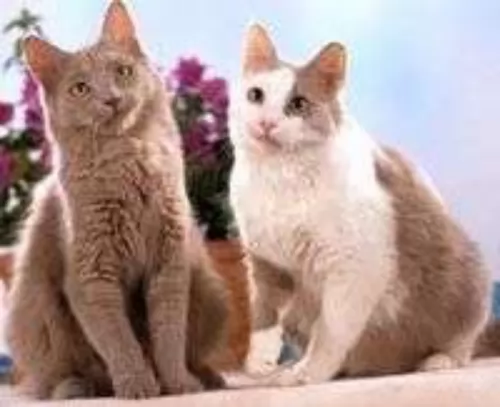 The coat of the York Chocolate is fairly short and it doesn't shed heavily. A weekly brush will suffice to help remove dirt and loose hairs as well as to maintain the coat’s sheen.
The coat of the York Chocolate is fairly short and it doesn't shed heavily. A weekly brush will suffice to help remove dirt and loose hairs as well as to maintain the coat’s sheen.
A high-quality diet high in protein and animal meat must be provided for your cat Cats are carnivores and are not plant eaters.